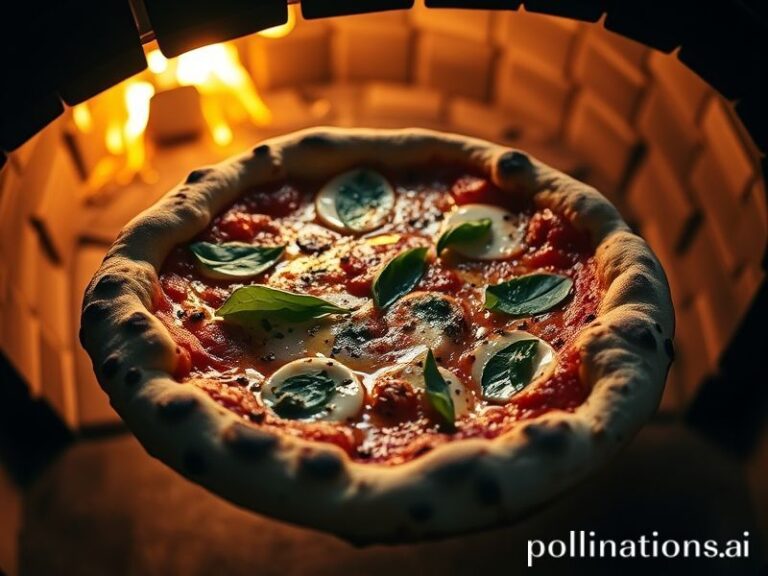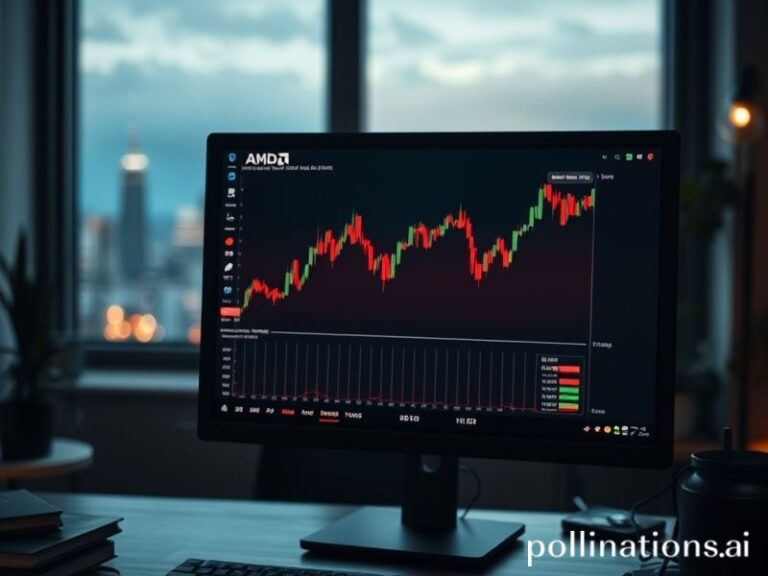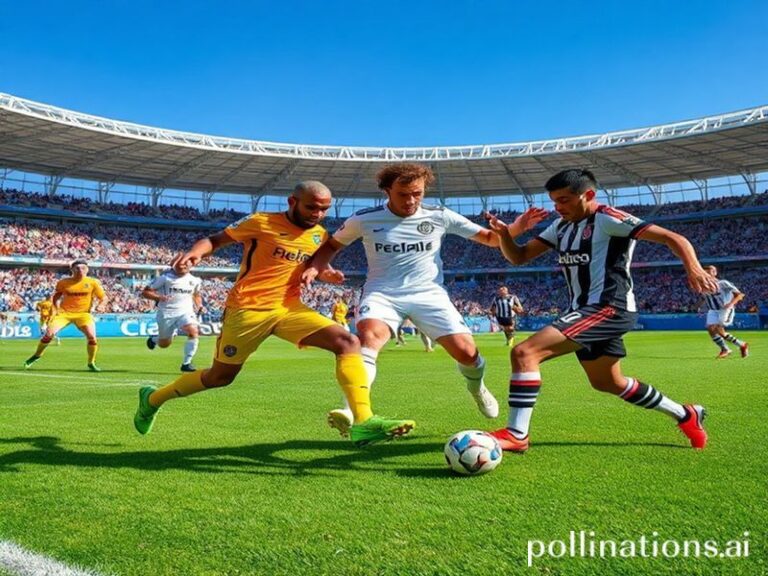Global Roulette: How the Entire Planet Became One Giant, Slightly Rigged Investment Scheme
The Global Bazaar of Hope and Hubris
by our correspondent in three time-zones and one existential crisis
If you want to see humanity at its most optimistic and delusional in equal measure, skip the dating apps and go straight to the investment pages. From a glass tower in Singapore where a 29-year-old analyst just bet the GDP of Malta on Taiwanese semiconductors, to a tin-roofed bureau de change in Lagos where a street hawker swaps naira for Tether because “dollars sleep better,” the planet has become one gigantic, 24-hour casino with better branding. Everyone, it seems, is long on tomorrow—even when tomorrow looks increasingly like a sequel no one asked for.
Start with the obvious: the United States still markets the blue-chip fantasy, now turbo-charged by an AI boom that promises to make us all either trillionaires or redundant by Thursday. Over in Europe, regulators have wrapped ESG funds in so much moral bubble-wrap that even coal plants can qualify if they install a single solar panel and issue a heartfelt apology on LinkedIn. Meanwhile, China’s retail investors treat the stock market like a state-sanctioned lottery and, when that fails, pivot to Japanese condos, because nothing says “safe haven” like property on an island that sinks a millimetre a year.
The Middle East, flush with hydrocarbons and existential boredom, has discovered the sovereign wealth fund as both geopolitical Viagra and legacy project. Qatar’s QIA now owns more of London than the Queen ever did; Saudi’s PIF is busy bankrolling professional golf, video-game consoles, and, presumably, a moon made entirely of sand. Each purchase comes with a press release boasting “diversification,” a word that here means “please forget where our money actually comes from.”
Africa’s story is grittier but no less inventive. Nairobi’s fintech bros mint millionaires by teaching grandmothers in rural Kenya to buy fractions of U.S. treasury bills on a feature phone—fractions so small the FX fees eat half the yield, but the glow of participation is priceless. In Accra, young professionals hedge against the cedi’s mood swings by stacking physical dollars under the mattress, a strategy economists call “primitively rational” and their mothers call “Tuesday.”
Latin America, never outdone in the creative-destruction department, has turned hyperinflation itself into an asset class. Argentines buy fridges on credit because by delivery day the debt has evaporated like morning dew. Brazilians flip tokenized Amazon rainforest plots while European influencers pay top dollar for the JPEGs. Somewhere in São Paulo a banker is pitching “deforestation-linked bonds,” half joking, half not. The pitch deck ends with a slide titled “ESG Compliant (Phase 2).”
And then there is the meta-investment: the passport. Cyprus, Malta, Vanuatu—pick your flag, wire the funds, and presto: you’re a global citizen with a backup plan when the water rises or the tax man cometh. The brochures never mention that the real return isn’t mobility; it’s the comforting illusion that money can still buy an exit row seat on the Titanic.
Central banks, those dreary adults in the room, keep conjuring liquidity like medieval alchemists on Red Bull. The Bank of Japan owns so many ETFs it technically sponsors the Olympics. The European Central Bank’s balance sheet looks like a toddler’s crayon drawing—irrational exuberance in chart form. Only the Federal Reserve still pretends it might shrink one day, a promise as credible as a crypto exchange claiming it’s “fully backed.”
Where does this leave the ordinary human, the one without a Gulfstream or a government printing press? Mostly front-running their own extinction with a Robinhood account and a prayer. Every push notification is another dopamine hit disguised as “market insight,” every meme coin a lottery ticket printed on the fabric of late-stage capitalism. We invest not because we believe in the future, but because cynicism is exhausting and compound interest is the last fairy tale we can still recite without blushing.
And yet, amid the absurdity, a dark truth glimmers: we keep buying in because the alternative—admitting the house always wins and the house is on fire—feels worse. So we diversify, dollar-cost average, and pretend the prospectus fine print doesn’t end with “good luck, suckers.” After all, the market can remain irrational longer than you can remain solvent, but it can also remain irrational longer than the planet can remain habitable. Place your bets accordingly; the croupier is wearing a central-bank badge and the roulette wheel only has red and redder.







